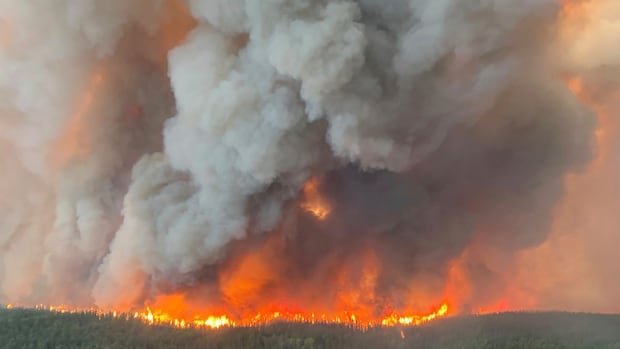This year’s wildfire season in Canada has become the second most severe on record, raising concerns that this pattern may become the norm. Over 7.3 million hectares have been consumed by fires this year, more than double the usual amount at this time, as reported by the Canadian Interagency Forest Fire Centre (CIFFC) and Natural Resources Canada.
According to Mike Flannigan, a wildland fire professor at Thompson Rivers University, the scale of the fires is equivalent to the size of New Brunswick. The past three fire seasons rank among the top 10 worst recorded since 1972, with the most destructive fires occurring in 2023. Flannigan, with decades of fire research experience, expressed alarm at witnessing three consecutive severe fire seasons.
Although Manitoba and Saskatchewan have been heavily impacted, British Columbia, Alberta, and Ontario have also surpassed their 25-year average for burned areas. Several provinces have implemented fire bans, including a complete restriction on forest access in Nova Scotia.
Assistance from the military and coast guard has been deployed to combat fires in Newfoundland and Labrador. Additionally, around 1,400 international firefighters have aided in battling Canadian wildfires this year, as confirmed by the CIFFC.
Experts attribute the prolonged fire seasons and widespread blazes to climate change caused by fossil fuel combustion, resulting in drier landscapes and more intense fires. The prevailing dry conditions across the country have facilitated rapid fire expansion this season.
David Phillips, a climatologist at Environment Canada, highlighted the excessively dry and hot conditions in Canadian forests this year, with no relief in sight. Unprecedented fires have emerged in regions like Newfoundland and Labrador, where fire incidents have escalated significantly.
Yan Boulanger, a forest ecology research scientist at Natural Resources Canada, emphasized the necessity to adapt to increased fire activity in ecosystems not accustomed to large fires. Quebec, heavily impacted in 2023, experienced a milder fire season this year due to early-season precipitation. However, a sudden dry spell in August has prompted experts to urge heightened vigilance.
Repeated severe fire seasons can lead to long-term ecological damage, hindering forest regeneration and reducing carbon sequestration capacity. The increased fire emissions exacerbate carbon release, with the 2023 fires contributing substantially to global wildfire emissions.
In response to the escalating wildfire threat, calls have been made for the establishment of a national forest fire coordination agency in Canada to enhance resource allocation and policy planning at a national level. The proposal has garnered support from various stakeholders, emphasizing the need for proactive measures to address the growing wildfire challenges.

